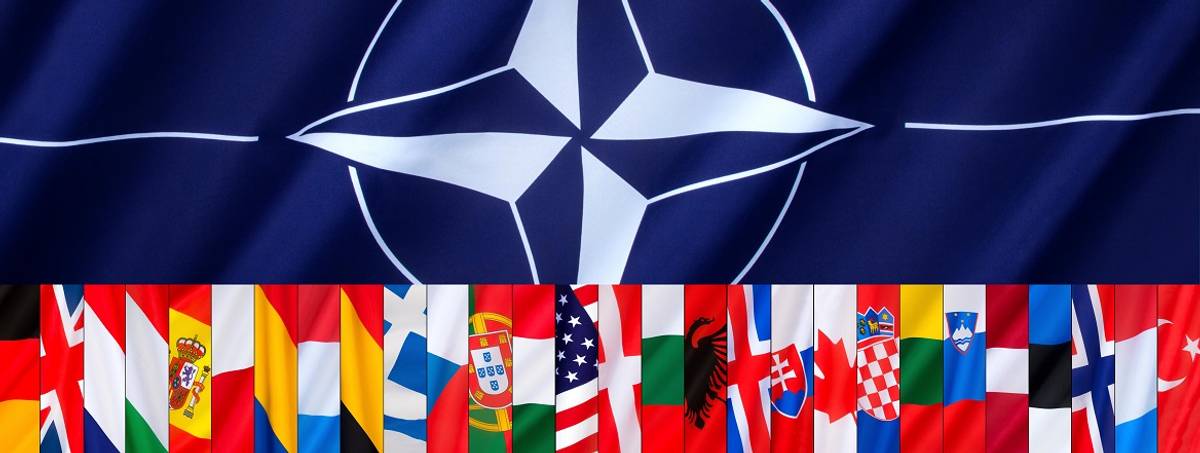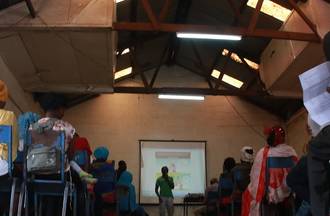Community Engagement in Fragile and Conflict Affected States
The project focuses on the transfer of knowledge between police and the military as part of community engagement in fragile and conflict-affected states (FCAS).
Militaries acting as part of international missions are recognised as a key contributor to post-conflict security, stabilisation, humanitarian response, development and governance within FCAS. International missions, including their military contingents, seek to address complex problems to bring coherence and coordination to the international community’s drive towards security, stabilisation, development and good governance in FCAS. Over the past few decades, military forces have been deployed to undertake an increasingly flexible range of duties, often resulting in a convergence between the strictly ‘military’ and ‘policing’ roles within operational environments where civilian populations are present.
NATO aims to be a successful learning organisation, embodied through the concept of ‘learning from experience to justify changes that will lead to improved performance during an operation’. The aim of this project is to identify lessons that can enhance the operational effectiveness of NATO military forces in efforts to respond to emerging security challenges.
Aims and objectives
The overarching aim of the project is to identify lessons learned as part of international efforts to respond to emerging security and stabilisation challenges. The goal is to develop practical guidance that will underpin future training, so as to enhance military effectiveness in an era that increasingly involves ‘war amongst the people’.
The project seeks to identify:
- To what extent militaries engage with communities and interact with citizens.
- How militaries can better understand community engagement and promote context sensitivity and awareness within FCAS.
- Whether policing/law enforcement duties undertaken by militaries can be perceived as legitimate in the eyes of the local community, particularly in relation to ‘versatile uses’ of force.
- How vulnerable communities can engage with police and militaries in FCAS.
- How knowledge is exchanged, and how lessons learned are translated into operational practice across the military and policing sectors when engaging with communities.
- The main risks involved in militaries undertaking policing roles.
- How militaries operate and co-operate with policing agencies within communities in FCAS.
- What tactics, techniques and procedures militaries apply to policing, and what training is provided on these.
Project output
A roundtable discussion in December 2020 marked the first collaborative event under this project, led by RUSI and the NATO Stability Policing Centre of Excellence (NSPCOE). The roundtable focused on ‘lessons learned’ from the experiences of NSPCOE police practitioners recently deployed to Afghanistan.
The development of good practice is integral to international mission effectiveness and sustainability. Sharing operational and tactical lessons between gendarmerie forces (including NSPCOE) and the military can foster effective policing within communities in hostile environments.
The roundtable discussion focused on three core themes: community securitisation, community engagement and gender. All are key components within police assistance programmes and security sector reform more broadly, and are of paramount importance in Afghanistan in earning the consent of the local population and enhancing the legitimacy of police and the state in the longer term. The broad lessons that emerged from this roundtable related to:
- Local community awareness and sensitivity
- Tailoring training, advisory and assistance programmes to the needs of local police
- Integrating gender within wider police assistance programmes
- Aligning police reform with wider criminal justice programmes
- Providing sustained commitment to security and development programmes
- The need for wider international donor community coordination and cooperation
- Use of the most suitable policing models to deliver police capacity building
- Developing police–military cooperation
The initial outputs from this roundtable, including an article on key lesson learning, will provide the framework for a larger-scale research project. This will identify good practice for the (NATO) military, from gendarmerie forces including NSPCOE, to Centre of Excellence for Stability Policing Units (CoESPU) and the European Gendarmerie Force (EGF).






